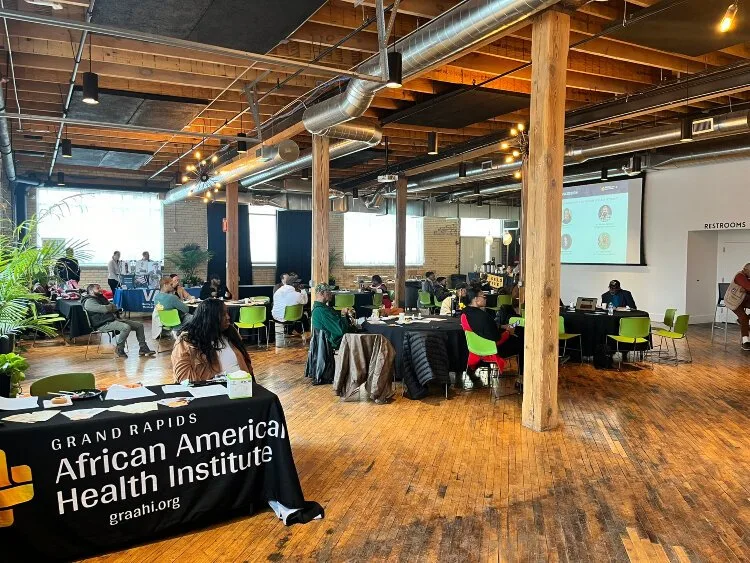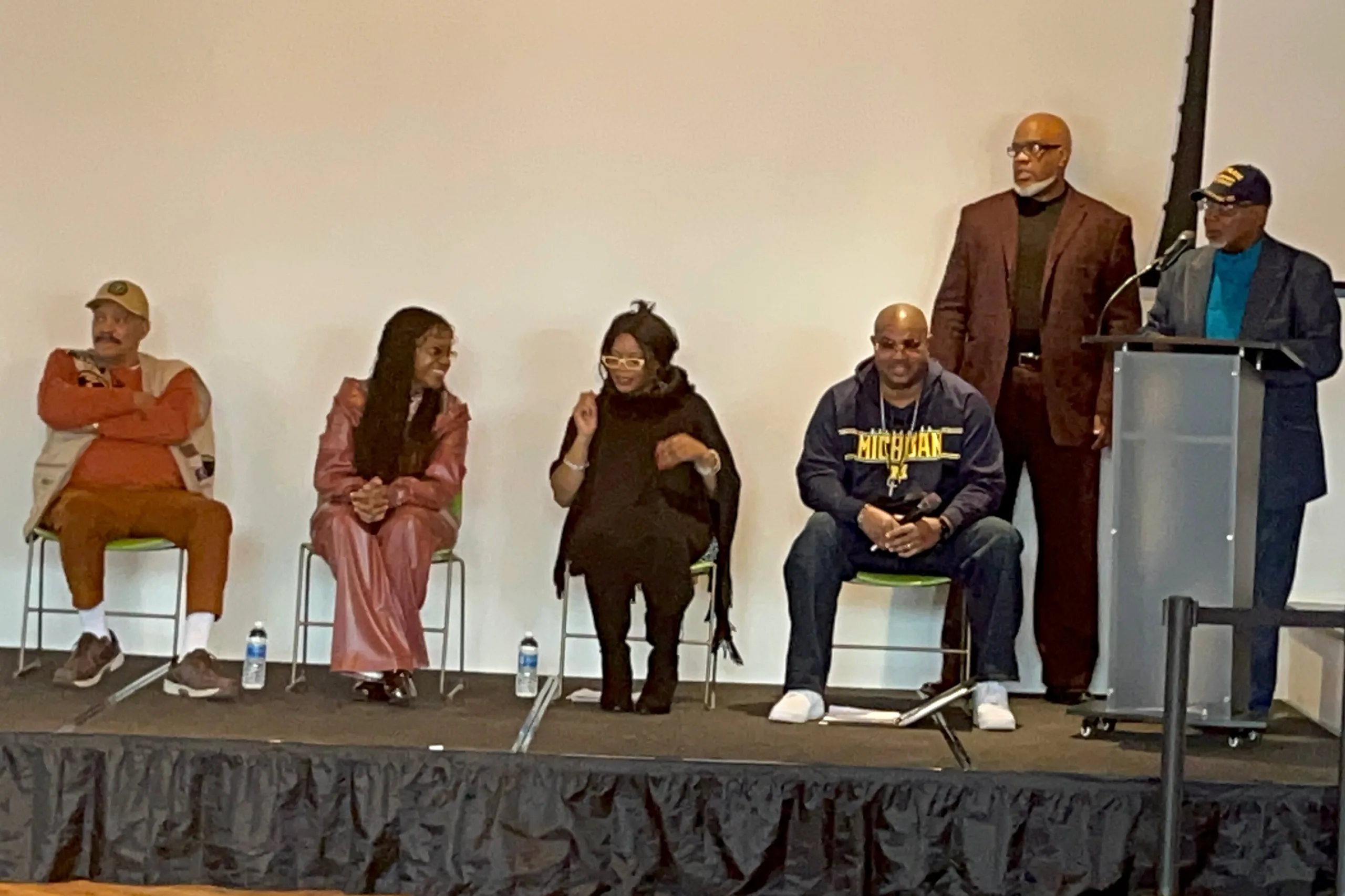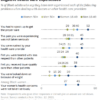This disparity was evident in data released from the Veterans Administration, as reported by Axios, which showed that in fiscal year 2023, more than 85% of all Black veterans who applied for health benefits were given assistance by the VA, compared to nearly 90% of their white counterparts who applied.
 The I Belong Strong mental health forum at The Center for Community Transformation on Saturday, February 17.
The I Belong Strong mental health forum at The Center for Community Transformation on Saturday, February 17.
This month, two Grand Rapids organizations stepped up to support Black veterans with the “I Belong Strong” mental health forum, Feb. 17 at The Center for Community Transformation.
The inaugural event was a partnership between the Grand Rapids African American Health Institute, devoted to achieving health care parity for African Americans, and the Greater Grand Rapids NAACP, whose mission is removing racial barriers and discrimination throughout Grand Rapids.
The right to services
Patrick D. Coleman, who co-hosted the event along with the Rev. Charles Hudson III, hopes that the most important take-away for the veterans who attended is knowing about all of the resources available in West Michigan.
“They earned the right to take advantage of the mental health services in West Michigan, regardless of what they’ve gone through, at any veteran facility,” says Coleman. “The resources are here to help them.”
Coleman, a 13-year Army veteran, was appointed Grand Rapids Community College’s veterans success coordinator in 2021.


 A panel of local veterans shared their experiences at the I Belong Strong mental health forum.
A panel of local veterans shared their experiences at the I Belong Strong mental health forum.
The free event, held during Black History Month, honored Black veterans with a program that included breakfast, a roundtable of Black veterans sharing their experiences during and after their service, a panel discussion with mental health experts, and representatives offering information about their organizations’ services for local veterans.
‘Bringing their lives back’
One of the participating organizations, Heroes Corner, offers local veterans a clean, sober, and safe space with food, emergency assistance, and other resources. Reginald “Reggie” Howard, a veteran and the founder of Heroes Corner, took his own money to start the organization after hearing many veterans say they didn’t have a place to just hang out and enjoy themselves.
“We take our veterans to the next level with their lives,” says Howard, also a peer support specialist. “We work with them at any level of just bringing comfort and bringing their lives back.”
Hudson connected the disparities in the treatment of black veterans from the past to the present and how local black veterans are affected. “African-American veterans in Kent County are negatively impacted by many of the most significant social determinants, including poverty, poor physical health, housing, food insecurity, job discrimination, prejudice, and social isolation.”
Hudson also recognized the how COVID added to these disparities, saying there are higher rates of suicide, dependency disorders, substance abuse, heightened anxiety, depression, family violence, homelessness, and many other issues among Black veterans in the community.
In addition to the veterans and professionals from related organizations, families and other supporters of the local veterans were present to better understand the experiences shared on the stage and learn how to be even more supportive.
“Just because we’re veterans, that doesn’t mean veterans want to do it by themselves,” says Howard, adding that civilians play a big part in supporting veterans by just being there. “We need you just as much as you need us. It takes a village.”


